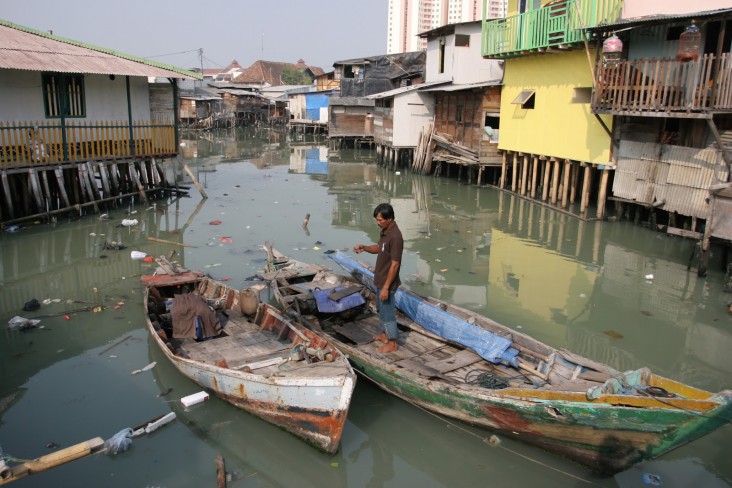Speeches Shim

In the North Sumatran city of Medan, Ramlah, Merry and Rudy live in the narrow alleys of India and Obat Streets. The clogged drainage ditch in front of their houses floods regularly with gray, murky water. When not addressed, standing water can lead to severe health problems, such as dengue fever or a deadly bout of diarrhea.
Their problem is not an uncommon one in Medan and other Indonesian cities. In 2015, the World Health Organization and UNICEF reported that only one in three urban families in Indonesia had access to clean piped water, while only seven out of ten had access to better sanitation services like wastewater treatment. Poorer families in urban areas often spend up to 20 percent of their income on water. In response to these alarming numbers, United States Agency for International Development (USAID) and its partners are working to improve access to fresh, clean water and better sanitation in Indonesia’s urban areas.
“Healthier communities contribute to a stronger, more prosperous Indonesia,” said USAID Environment Office Director Matthew Burton. “By helping more families live cleaner lives through improved access to safe drinking water at a fairer cost, USAID can help reduce the transmission of deadly diseases and enable communities to thrive.”
Through the Indonesian Urban Water, Sanitation, and Hygiene (IUWASH, 2010-2016) and IUWASH Penyehatan Lingkungan Untuk Semua (IUWASH PLUS, 2016-2021) Projects, USAID has supported the Government of Indonesia’s efforts to make significant progress towards achieving its target for universal access to safe water and sanitation.
As a result of the partnership, local residents like Ramlah, Merry, and Rudy are living healthier, cleaner lives. “I feel healthier. It’s not smelly around here anymore. My neighbors also got help,” said Rudy. Thanks to these efforts, more than 397,000 people in disadvantaged North Sumatran communities now enjoy access to the municipal water supply through 79,400 new household connections. Moreover, this stable, safe water supply costs 32 percent less than the ad hoc arrangements upon which the poor previously had to rely.
Residents across Medan and other cities are gaining greater access to clean water and modern sanitation systems than ever before. In mid-2016, USAID continued the partnership with the Government of Indonesia through IUWASH PLUS.
For more, follow @USAIDIndonesia on Facebook, Exposure, Twitter and Flickr.
Story by Samantha Martin and Ragini Chatterjee with assistance from Kresna Soegio.

Comment
Make a general inquiry or suggest an improvement.